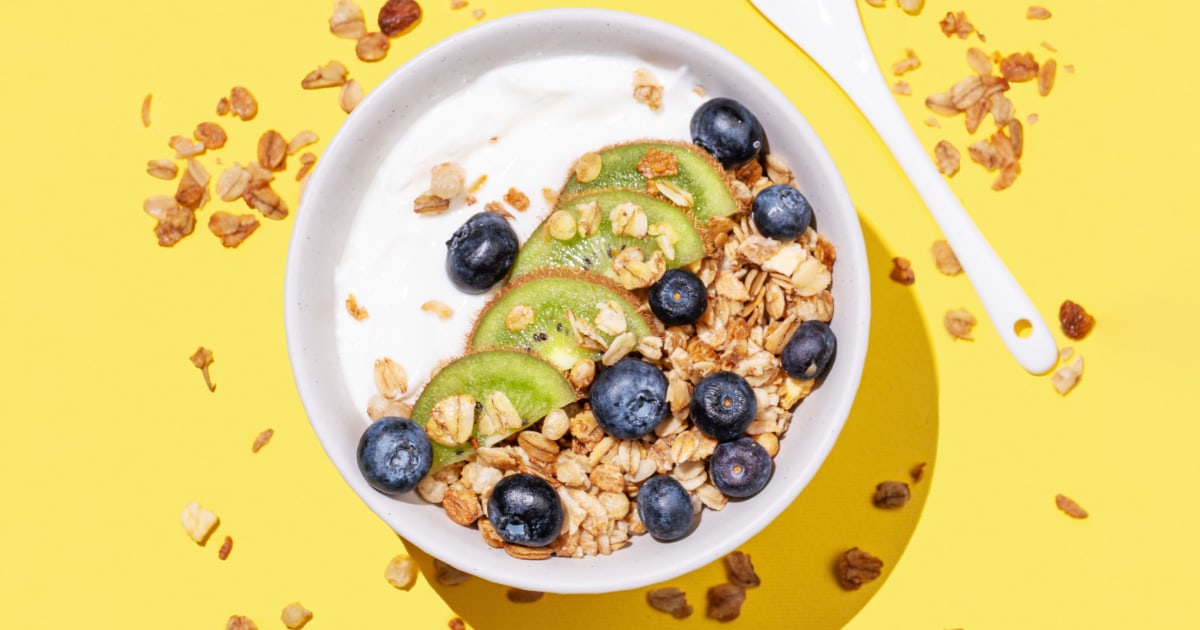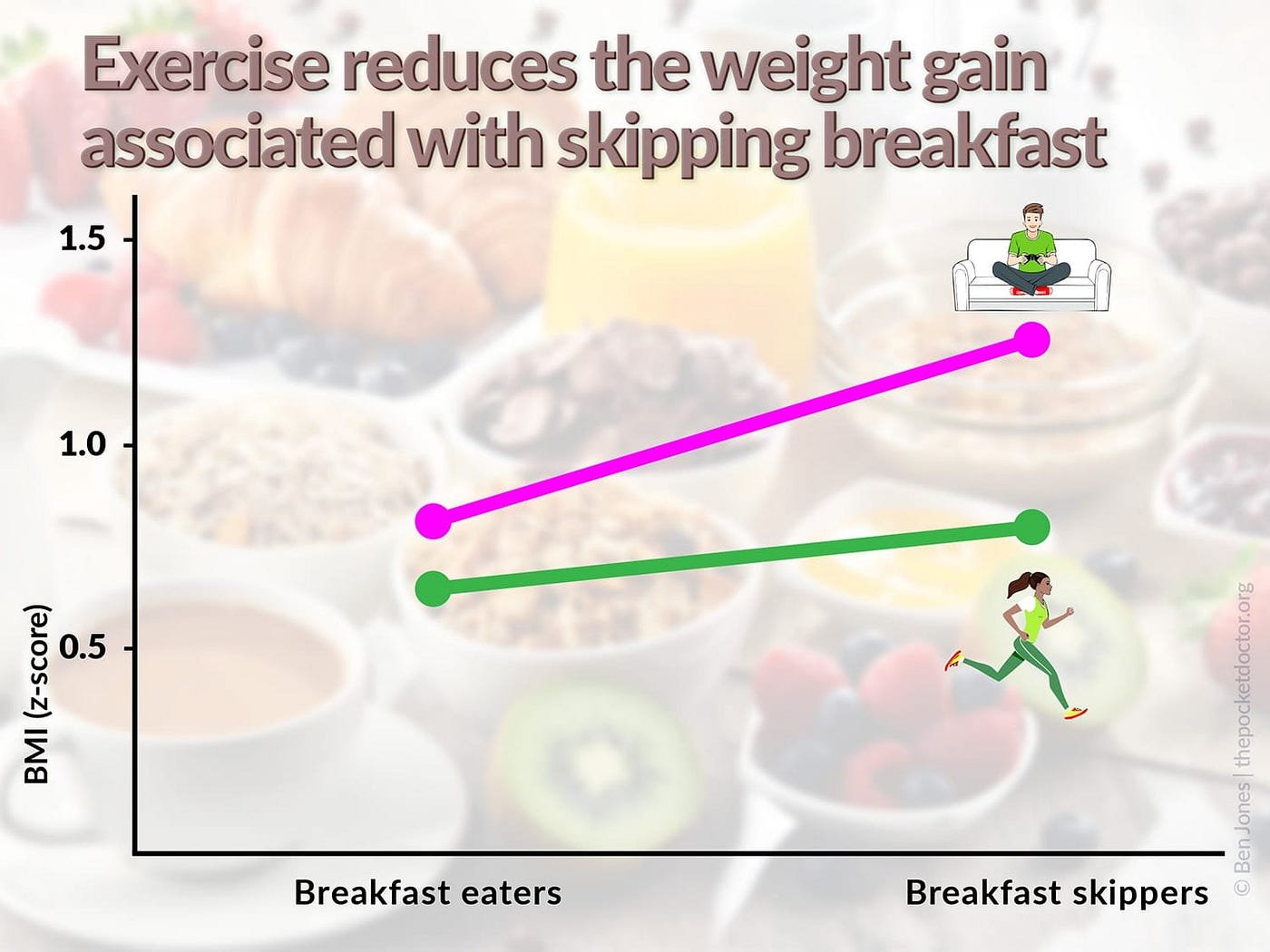Have you ever wondered if skipping breakfast could actually help you lose weight faster? Or maybe you’ve heard that eating a healthy breakfast is the key to shedding pounds.
The truth is, breakfast plays a bigger role in your weight loss journey than you might think. What you eat first thing in the morning can set the tone for your entire day—affecting your energy, hunger levels, and how your body burns fat.
Keep reading to discover why breakfast matters so much and how you can use it to boost your weight loss results. Your next meal could be the game changer you’ve been looking for.
Role Of Breakfast In Weight Loss
Breakfast is often called the most important meal of the day. Eating the right foods in the morning can help with weight loss. It sets the tone for how your body uses energy.
Skipping breakfast may cause you to eat more later. A good breakfast can support healthy habits throughout the day.
Metabolism And Morning Meals
Eating breakfast helps start your metabolism. After fasting overnight, your body needs fuel to begin burning calories.
A healthy morning meal can increase calorie burning. It helps your body use energy efficiently all day long.
Appetite Control Throughout The Day
Breakfast can reduce hunger later. It stops sudden cravings and overeating at lunch or dinner.
When you eat a balanced breakfast, you feel full longer. This helps control portions and avoid snacks high in sugar or fat.
- Choose protein-rich foods for fullness
- Include fiber to slow digestion
- Avoid sugary breakfasts that spike hunger
Energy Levels And Physical Activity
Breakfast gives you energy to be active. Exercise helps burn calories and supports weight loss.
Without breakfast, you may feel tired or weak. Eating well in the morning improves focus and motivation for physical activity.

Scientific Studies On Breakfast And Weight
Breakfast is often called the most important meal of the day. Many people believe it helps with weight loss.
Scientists have studied if eating breakfast really affects body weight. The results show different views.
Research Supporting Breakfast Benefits
Some studies show that eating breakfast helps control weight. It may reduce hunger later in the day.
Eating a healthy breakfast can improve metabolism and energy use. This may lead to less fat storage.
- Breakfast eaters often have lower body mass index (BMI).
- Skipping breakfast may increase appetite and overeating.
- Regular breakfast can improve diet quality and nutrient intake.
Studies Questioning Breakfast Impact
Other research finds no strong link between breakfast and weight loss. Some show breakfast skipping does not cause weight gain.
These studies suggest total daily calories matter more than meal timing. Weight loss depends on overall diet and activity.
- Skipping breakfast can reduce total calorie intake for some people.
- No clear evidence that breakfast alone prevents obesity.
- Meal frequency may not affect weight if calories are controlled.
Variations In Individual Responses
People respond differently to eating or skipping breakfast. Genetics, habits, and lifestyle affect results.
Some feel more energetic with breakfast. Others lose weight by skipping it. Personal preference matters.
- Morning people may benefit from breakfast.
- Night owls might do well without breakfast.
- Health conditions can change breakfast effects.
Types Of Breakfast For Weight Loss
Breakfast plays a key role in weight loss. Choosing the right foods helps control hunger and energy.
Different types of breakfasts support weight loss by focusing on nutrients like protein, fiber, and low sugar.
High-protein Options
Protein keeps you full longer and helps build muscle. It also boosts metabolism.
Good high-protein breakfasts include eggs, Greek yogurt, and lean meats.
- Boiled or scrambled eggs
- Greek yogurt with nuts
- Turkey or chicken breast slices
- Protein smoothies with whey or plant protein
Fiber-rich Choices
Fiber slows digestion and helps you feel full. It also supports healthy digestion.
Foods high in fiber include fruits, vegetables, and whole grains.
- Oatmeal topped with berries
- Whole grain toast with avocado
- Chia seed pudding
- Fresh fruit like apples or pears
Low-sugar Alternatives
Low-sugar breakfasts prevent blood sugar spikes. This helps reduce cravings later.
Choose natural sweeteners or avoid added sugars in your breakfast.
- Plain yogurt with cinnamon
- Eggs with vegetables
- Unsweetened nut butter on whole grain bread
- Herbal tea or black coffee without sugar

Common Breakfast Mistakes
Breakfast is often called the most important meal for weight loss. Many people make mistakes that stop them from losing weight. These errors can make breakfast less helpful or even harmful.
Understanding common breakfast mistakes can help you make better choices. Avoiding these mistakes will support your weight loss goals.
Skipping Breakfast
Skipping breakfast can slow down your metabolism. It may cause you to eat too much later in the day. This leads to more calories and weight gain.
Eating breakfast helps control hunger and energy levels. It keeps your body active and ready for the day.
Choosing High-calorie Foods
Many people pick breakfast foods that have too many calories. Foods like sugary cereals, pastries, and fried items add extra fat.
High-calorie breakfasts can make weight loss harder. Choose foods that are low in calories but high in nutrients.
- Sugary cereals
- Pastries and donuts
- Fried breakfast meats
- Sweetened drinks
Ignoring Portion Sizes
Eating large portions at breakfast adds too many calories. Even healthy foods can cause weight gain if portions are too big.
Watch your portion sizes to keep calorie intake in control. Smaller portions help with steady weight loss.
- Use smaller plates
- Measure servings
- Avoid second helpings
- Listen to your hunger
Alternatives To Traditional Breakfast
Breakfast is often called the most important meal of the day. But not everyone likes or has time for a big morning meal. Some people choose different ways to eat in the morning that still support weight loss.
These alternatives can fit various lifestyles and still help control hunger and energy levels. They include changing when you eat and what you eat in the morning.
Intermittent Fasting Effects
Intermittent fasting means skipping breakfast or eating it later. This approach can reduce daily calorie intake. It may help the body burn fat more efficiently.
People who fast in the morning often eat their first meal around noon. This helps some avoid overeating and improves insulin sensitivity.
- Skipping breakfast can lower calorie intake
- Fasting periods help burn stored fat
- May improve blood sugar control
Brunch And Meal Timing
Brunch combines breakfast and lunch into one meal. Eating later in the morning can suit people who do not feel hungry early. Brunch can be balanced to include protein, fiber, and healthy fats.
Timing your meals well helps control hunger and prevent overeating later. Eating brunch instead of breakfast and lunch can simplify your day.
- Brunch replaces two meals with one
- Helps maintain calorie control
- Supports steady energy through the day
Snack-based Morning Eating
Some people prefer small snacks instead of a full breakfast. Healthy snacks can include nuts, yogurt, or fruit. These provide energy without feeling heavy.
Eating light snacks can keep hunger away until the next meal. This approach may help with portion control and reduce calorie intake.
- Small snacks give quick energy
- Easy to control portion sizes
- Can prevent overeating later

Tips For Effective Breakfast Habits
Breakfast plays a key role in weight loss. Eating well in the morning helps control hunger and boosts energy.
Good breakfast habits support your health and help keep your weight steady over time.
Planning Balanced Meals
Plan your breakfast to include protein, healthy fats, and fiber. This mix keeps you full longer.
Balanced meals help avoid cravings later and support steady energy throughout the day.
- Include eggs, yogurt, or nuts for protein
- Add fruits or vegetables for vitamins and fiber
- Choose whole grains like oats or whole wheat bread
Incorporating Variety
Eating different foods keeps breakfast interesting and provides more nutrients. Try new recipes often.
Variety helps prevent boredom and encourages a wider range of healthy foods.
- Mix fruits such as berries, apples, or bananas
- Use different protein sources like cottage cheese or lean meats
- Try spices like cinnamon or nutmeg for flavor without added sugar
Consistency And Routine
Eat breakfast at the same time every day. A routine helps your body adjust and reduces overeating later.
Consistent meals improve digestion and keep your metabolism steady for weight control.
- Set a regular time to eat breakfast daily
- Prepare meals ahead to save time in the morning
- Stick to healthy choices even on busy days
Frequently Asked Questions
Does Skipping Breakfast Affect Weight Loss?
Skipping breakfast can slow metabolism and increase hunger later. This often leads to overeating, hindering weight loss progress. Eating a balanced breakfast helps control appetite and supports fat burning throughout the day.
What Foods Boost Weight Loss At Breakfast?
Protein-rich foods like eggs, Greek yogurt, and nuts boost metabolism. Fiber-rich fruits and whole grains promote fullness and reduce calorie intake. These foods stabilize blood sugar and prevent cravings, aiding effective weight loss.
How Soon After Waking Should I Eat Breakfast?
Eating breakfast within one hour of waking jumpstarts metabolism. Early meals help regulate blood sugar and energy levels. Delaying breakfast may cause overeating later, which can negatively impact weight loss goals.
Can Breakfast Timing Impact Fat Burning?
Yes, eating breakfast at consistent times supports better fat metabolism. Regular meal timing improves hormone balance and energy use. Irregular breakfast habits can disrupt metabolism and slow weight loss efforts.
Conclusion
Breakfast plays a vital role in weight loss. It fuels your day. Eating a healthy breakfast can curb cravings later. This helps you avoid unhealthy snacks. Balanced meals in the morning boost metabolism. They help you burn calories efficiently. Skipping breakfast might lead to overeating later.
Regular breakfast eaters tend to have a healthier weight. Remember, it’s not just about eating. It’s about making smart choices. Choose whole grains, fruits, and proteins. These keep you full longer. Consistency is key. Every small step counts toward a healthier lifestyle.
Start your day right. Enjoy a nutritious breakfast.




